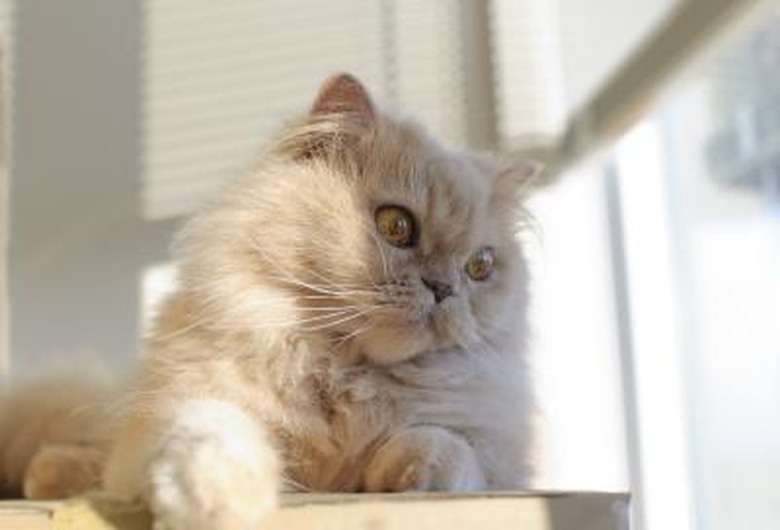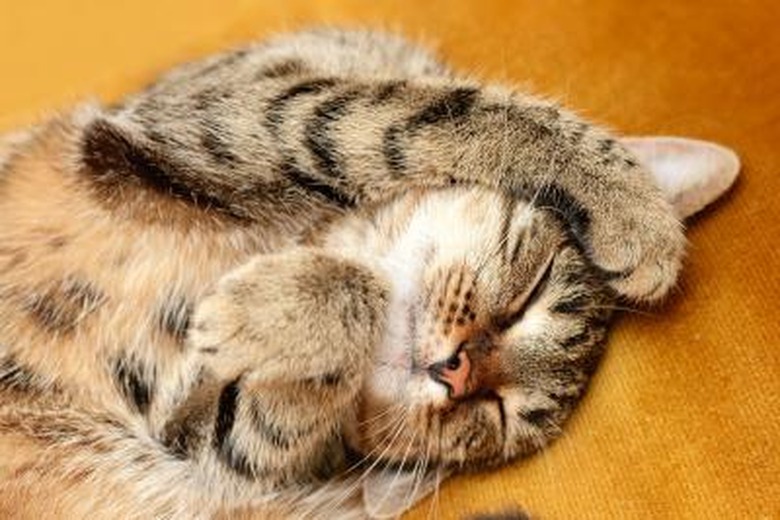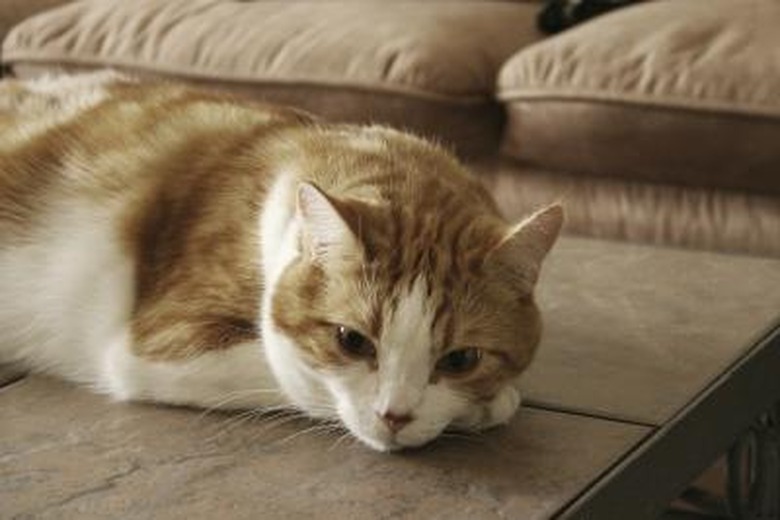Life Expectancy Of A Feline With Kidney Disease
Two distinct types of kidney disease affect cats: acute renal failure, which develops suddenly, and chronic renal failure, which develops and worsens over time. Kidney disease is the leading cause of death in cats. As cats age, unfortunately, many will develop some degree of renal failure. Starting your cat on low protein diets mid-life can help delay the condition.
Types of cat kidney disease
Types of cat kidney disease
Acute kidney disease occurs when there is a sudden shutdown of the kidneys, usually due to ingesting a toxin. Antifreeze is the most common cause of acute renal failure in cats; it has a sweet odor and is enticing. Although acute renal failure is almost always fatal, if treated immediately and aggressively, your cat can recover and go on to lead a normal life. Do not wait for signs of kidney failure if you have the slightest indication that your cat has ingested antifreeze. If he has already begun to show signs, then it is probably too late to help him.
Chronic renal failure is a slowly progressing disease that affects older cats and is the leading cause of death. Chronic renal failure can be a result of genetics, age, environment and infection. There is no cure, but with proper treatment, your cat can live for several months or even years.
Kidney disease in cats: life expectancy
Kidney disease in cats: life expectancy
It is important that you understand the mechanics of the kidneys and kidney disease in order to understand the treatment that your vet will prescribe. Remember there is no cure for kidney disease, your goal in treatment is to prolong your cat's life and make him as comfortable as possible. However, with treatment cats can live several years after diagnosis.
Think of your cat's kidneys as a large filtration system, which filter the toxins that are produced naturally during metabolism. When the kidneys begin to stop functioning normally, these toxins begin to accumulate in the cat's body, leading to the symptoms described below. As the disease progresses, the kidneys begin to harden and are able to filter fewer and fewer toxins. It is not until a third of the kidney function has been lost that symptoms usually appear.
Symptoms of cat kidney failure
Symptoms of cat kidney failure
Symptoms of renal failure may be subtle and may progress slowly. It is important for the long-term health of your cat to seek medical attention immediately if you notice that he is visiting the water bowl or the litter box more frequently, as this is the first indication that your cat could be having kidney problems.
As the disease progresses, your cat might experience vomiting, weight loss, bad breath, high blood pressure, and dehydration. He will become less active and might stop grooming; his coat will appear dull and he will probably become lethargic. Large pupils are a sign of high blood pressure.
Diagnosing cat kidney failure
Diagnosing cat kidney failure
Your veterinarian will perform a clinical examination to determine whether further testing for kidney failure is indicated. They will perform a blood test to measure the amount of certain byproducts of normal metabolism including blood urea nitrogen and creatinine. Ask your vet if she has access to a recently developed blood test that access levels of SDMA (a naturally occurring biological indicator for kidney function). This test can detect renal problems earlier than previously used tests.
If these levels are higher than normal, it is a clear indication that your cat's kidneys are not filtering correcting. The vet also will perform a urinalysis to determine whether the urine is more diluted than normal or if it contains proteins and sugars as these are also indications of renal failure.
Treatment for feline renal failure
Treatment for feline renal failure
Because there is no cure for kidney disease, treatment is aimed at prolonging the cat's life and making him more comfortable. The treatment plan depends on the severity of the condition and is individualized based on your veterinarian's findings.
The first step is to encourage your cat to drink plenty of water; he will be less likely to become dehydrated and this will help the kidneys to filter better. Adding multivitamins and supplements also might be suggested by your veterinarian to help boost his immune system and overall health. Subcutaneous fluids help filter toxins from the blood and are routinely administered in the latter stages of the disease. A low-protein diet is also indicated because it creates fewer waste products.
Prognosis for feline with kidney disease
Prognosis for feline with kidney disease
There is no cure for chronic renal failure. With proper treatment of kidney disease in cats, life expectancy can be many months or even years after diagnosis — the sooner the better. You will be the one to determine whether the quality of his life has deteriorated. Chronic renal failure is generally painless, but as the disease progresses, your cat will experience nausea, weakness, and lethargy.


